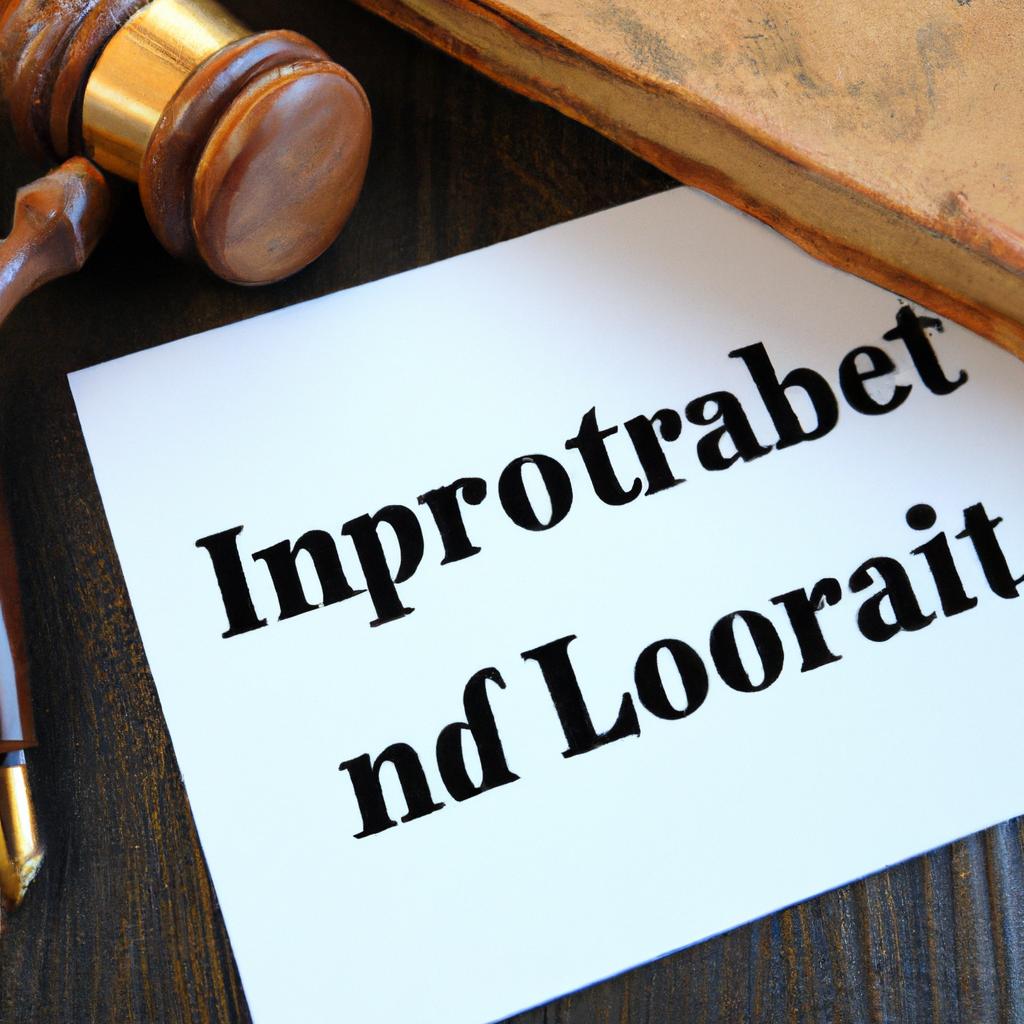In the realm of estate planning and probate, one often overlooked aspect is the time it takes for a will to be read and executed. As experienced lawyers at Morgan Legal Group in New York City, we understand the importance of clarity and efficiency when it comes to distributing assets and carrying out final wishes. In this article, we will delve into the intricacies of the probate process and shed light on the timeline for when a will is typically read and enacted.
Understanding the Probate Process in Relation to Will Reading
When it comes to the probate process in relation to will reading, one of the most common questions asked is, “how long does it take for a will to be read?” The answer to this question can vary depending on various factors, including the size and complexity of the estate, the number of beneficiaries involved, and any potential disputes that may arise.
Generally speaking, the probate process can take anywhere from a few months to a few years to complete. During this time, the executor of the will is responsible for gathering the deceased person’s assets, paying off any debts or taxes owed, and distributing the remaining assets to the beneficiaries. It is important to note that the reading of the will itself is typically just one step in the overall probate process, and is often not the determining factor in how long the process will take to be completed. **At Morgan Legal Group**, we specialize in guiding our clients through the probate process with care and expertise, ensuring that their loved one’s wishes are carried out in a timely and efficient manner.

Factors Influencing the Timeline for Will Reading
can vary depending on several key elements. One crucial factor is the size and complexity of the estate left behind by the deceased. Larger estates with numerous assets or complicated financial arrangements may require more time to review and distribute. Additionally, the presence of any disputes or contests regarding the will can significantly delay the reading process.
Another important factor to consider is the executor’s efficiency and organization. An executor who is proactive in gathering necessary documents and communicating with beneficiaries can expedite the timeline for will reading. On the other hand, delays in locating important paperwork or failure to adhere to legal requirements can prolong the process. It is essential for all parties involved to work together smoothly to ensure a timely and efficient resolution of the deceased’s affairs.
| Factors | Impact on Will Reading Timeline |
|---|---|
| Size and complexity of the estate | Can delay reading process |
| Disputes or contests | Significantly prolong timeline |

Tips for Expediting the Will Reading Process
When it comes to expediting the will reading process, there are several tips that can help streamline the procedure and ensure a quicker resolution to the estate. One of the most important things to keep in mind is to make sure the will is readily accessible and easily located. Having a clear and organized filing system can greatly assist in speeding up the process.
Additionally, it is crucial to work with a skilled and experienced probate attorney who can guide you through the legal requirements and help navigate any potential roadblocks. By having all necessary documents in order and seeking professional assistance, you can expedite the will reading process and ensure a smooth transition of assets in a timely manner.

Importance of Seeking Legal Guidance During Probate
Probate can be a complex and lengthy process, and seeking legal guidance during this time is crucial for ensuring that everything is handled correctly. The reading of a will is just one step in the probate process, and it typically happens shortly after the death of the testator. However, the exact timeline can vary depending on various factors.
Factors that can impact how long it takes for a will to be read include the size and complexity of the estate, any disputes or contests regarding the will, and the efficiency of the court system. By working with an experienced probate attorney, you can navigate these potential challenges and ensure that the probate process is handled smoothly and efficiently.
Q&A
Q: How long does it typically take for a will to be read after someone passes away?
A: The process of reading a will can vary depending on the circumstances, but it is usually done fairly soon after the person’s passing.
Q: Who is involved in the reading of a will?
A: Typically, a lawyer or executor of the will will be present to ensure that the will is properly read and executed according to the deceased individual’s wishes.
Q: Are there any legal requirements regarding the timeline for reading a will?
A: While there may not be a specific deadline for reading a will, it is generally recommended to do so in a timely manner to prevent any disputes or confusion.
Q: What factors may impact the length of time it takes to read a will?
A: Factors such as the complexity of the will, the number of beneficiaries involved, and any potential challenges to the validity of the will can all influence the timeline for reading a will.
Q: Is it possible for the reading of a will to be delayed?
A: Yes, the reading of a will may be delayed if there are any legal issues, disputes among beneficiaries, or challenges to the will’s validity that need to be resolved first.
Q: Can the contents of a will be kept private until it is read?
A: Yes, the contents of a will are typically kept confidential until it is officially read and executed according to the deceased individual’s wishes.
In Summary
In conclusion, the process of reading a will can vary depending on the complexity of the estate and any disputes that may arise. It is important to remember that the reading of a will is just one step in the overall probate process, which can take several months to complete. It is recommended to consult with a legal professional to ensure that the wishes outlined in the will are carried out effectively and efficiently. Thank you for reading and we hope this article has provided some clarity on this topic.
 How Long Does It Take for a Will to Be Read?
How Long Does It Take for a Will to Be Read?
A will is a legal document that outlines a person’s wishes for how their assets and belongings will be distributed after their death. It is an important document that ensures an individual’s final wishes are carried out according to their desires. However, many people wonder how long it takes for their will to be read and executed. In this article, we will delve into the process of reading a will, as well as factors that can affect the timeline for its execution.
The Process of Reading a Will
When a person dies, their will goes through a legal process known as probate. Probate is a court-supervised process for identifying and gathering the deceased person’s assets, paying any outstanding debts and taxes, and distributing the remaining assets to beneficiaries as outlined in the will. During this process, the will is read and executed.
The executor, who is typically named in the will, is responsible for carrying out the terms of the will. They must first submit the will to the court for probate, where it will be reviewed and accepted as valid. The executor will then begin the process of gathering the deceased person’s assets and preparing for distribution among the beneficiaries.
Factors Affecting the Timeline of Executing a Will
1. The Complexity of the Estate
The first factor that can affect how long it takes for a will to be read and executed is the complexity of the estate. If the estate includes multiple properties, businesses, or investments, it may take longer to gather and distribute assets. Additionally, if there are multiple beneficiaries with various needs and interests, the process may also be more complicated and time-consuming.
2. Challenges to the Will
In some cases, beneficiaries or other interested parties may challenge the validity of the will. This can significantly delay the execution process as the court must review and settle any disputes or claims. If there are challenges to the will, it is wise to consult with a lawyer to ensure your rights and the wishes of the deceased are protected.
3. Debts and Taxes
Before any distribution of assets can occur, the executor must ensure that all outstanding debts and taxes are paid. This can take time, especially if there are complex tax issues to be dealt with. In some cases, the estate may have to go through an audit by the IRS, which can impact the timeline of executing the will.
4. Location
The location where the will was made can also affect how long it takes for it to be read and executed. Each state has its own laws and regulations surrounding probate, and some may have a longer process than others. Additionally, if the estate includes assets in multiple states, it may take longer to carry out the terms of the will.
5. The Executor’s Availability
The executor plays a crucial role in the execution process, and their availability can impact how long it takes for the will to be read and executed. If the executor lives far away or has other commitments, it may take longer for them to complete their duties. In some cases, the executor may also need to seek help from professionals such as lawyers or accountants, which can also prolong the process.
In summary, the timeline for executing a will can vary greatly and depends on various factors. On average, the process can take anywhere from six months to a year, but it can take longer in more complex cases. It is essential to have a will as it ensures your final wishes are carried out and can save your loved ones from potential conflicts and disputes.
Practical Tips for Making the Process of Reading a Will Smoother
1. Keep your will updated and accurate. As your life changes, make sure to update your will to reflect any significant changes, such as marriage, divorce, or the birth of a child.
2. Communicate openly with your loved ones about your final wishes. This can help mitigate any potential conflicts and ensure everyone is aware of your wishes.
3. Choose an executor you trust and who is capable of carrying out the responsibilities outlined in the will.
4. Keep important financial and legal documents such as bank statements, insurance policies, and property deeds in a safe and accessible place.
In Conclusion
In most cases, it can take six months to a year for a will to be read and executed. However, this timeline can vary depending on several factors, such as the complexity of the estate, challenges to the will, outstanding debts and taxes, and the availability of the executor. To ensure a smooth and timely process, it is essential to have an updated and accurate will, communicate openly with your loved ones, and choose a reliable executor.

